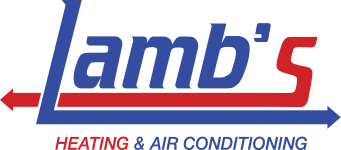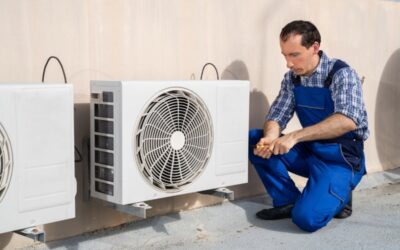Your air quality affects everything from your health to how your HVAC system operates. You may not know much about it, let alone how to create better air quality in your Floyds Knobs, IN home. Discover what constitutes air quality, why it’s important, and what you can do to improve it in your home.
What Exactly Is Indoor Air Quality?
Indoor air quality, or IAQ, refers to the concentration of contaminants in your home’s air. These contaminants can be particulate matter, biological particles, or various gases.
Examples of particulate matter include dust, various vapors, and more. Biological contaminants include pet dander, various spores, dust mites, viruses, bacteria, and pollen. Then there are various gases, including radon, sulfur dioxide, and volatile organic compounds, or VOCs.
Common Sources of Airborne Contaminants
You may think that most air pollution comes from outside your home, but the vast majority actually comes from within. This can be from burning anything in your home, including the gas burning in your furnace. It may also come from pets or even dry skin.
In addition, personal care products like air fresheners, body sprays, and cleaners, can put off various gasses that can impact your air quality. Almost every time you burn, spray, or spritz, gasses are released, so it’s important to keep this in mind. Some products will advertise if their propellants are gas-free.
Further, other lifestyle choices may also contribute to more airborne pollution. Smoking or vaping inside or having a fire in your fireplace can contribute to significant IAQ issues.
Implications of Poor Indoor Air Quality
Poor indoor air quality has implications for both you and your home. For you and your family, poor IAQ can result in a stressed immune system, leading to more frequent illness.
It’s a known factor in allergies and asthma attacks. Some studies link some airborne contaminants to endocrine dysfunction and cancer.
For your home, poor IAQ reduces your HVAC system’s efficiency. A higher concentration of contaminants leads to more rapid collection on your air filter.
The smaller particles make their way past your filter, settling on your heat exchanger, evaporator coil, and circulating fan. All of these reduce the airflow through your system, raising heating and cooling costs and increasing how often you’ll need AC and furnace repairs.
Reduce IAQ Contaminant Sources
The first step to improving your home’s IAQ is reducing the sources of indoor pollution whenever possible. Limit the number of fires, candles, or incense you burn, and opt for essential oils over normal air fresheners.
Choose cleaning solutions and personal care products that do not contain VOCs. You may not have much choice in what’s contributed by furniture and other manufactured sources.
Control Indoor Humidity
Work to maintain 30% and 50% relative indoor humidity, the range the EPA suggests is ideal. Higher humidity leads to an environment that encourages various spore and biological development. Less than 30% humidity dries things out in the home, increasing dry particles that stay airborne longer.
Improve Ventilation
Do whatever you can to improve your home’s ventilation, which helps remove airborne contaminants from your home. Whenever possible, open windows to increase ventilation when there’s cooperating weather.
However, consider adding additional mechanical ventilation, such as an energy recovery ventilator or ERV. These improve ventilation and pre-condition the fresh air coming in by using the air you’ve paid to heat or cool.
Add Other Control Solutions
You may want to add further IAQ solutions to your home, from substantial media filters to air purifiers. There are portable options you can use in individual problematic rooms, as well as whole-house devices. The larger options install into your HVAC system and offer the greatest impact on your entire home.
Give your home the best air quality possible by controlling sources and adding appropriate IAQ devices. Your home may not need the same approach as your neighbor, so get the best solution for your environment. Schedule your consultation with one of the indoor air quality specialists at Lamb’s Heating & Air Conditioning today.




